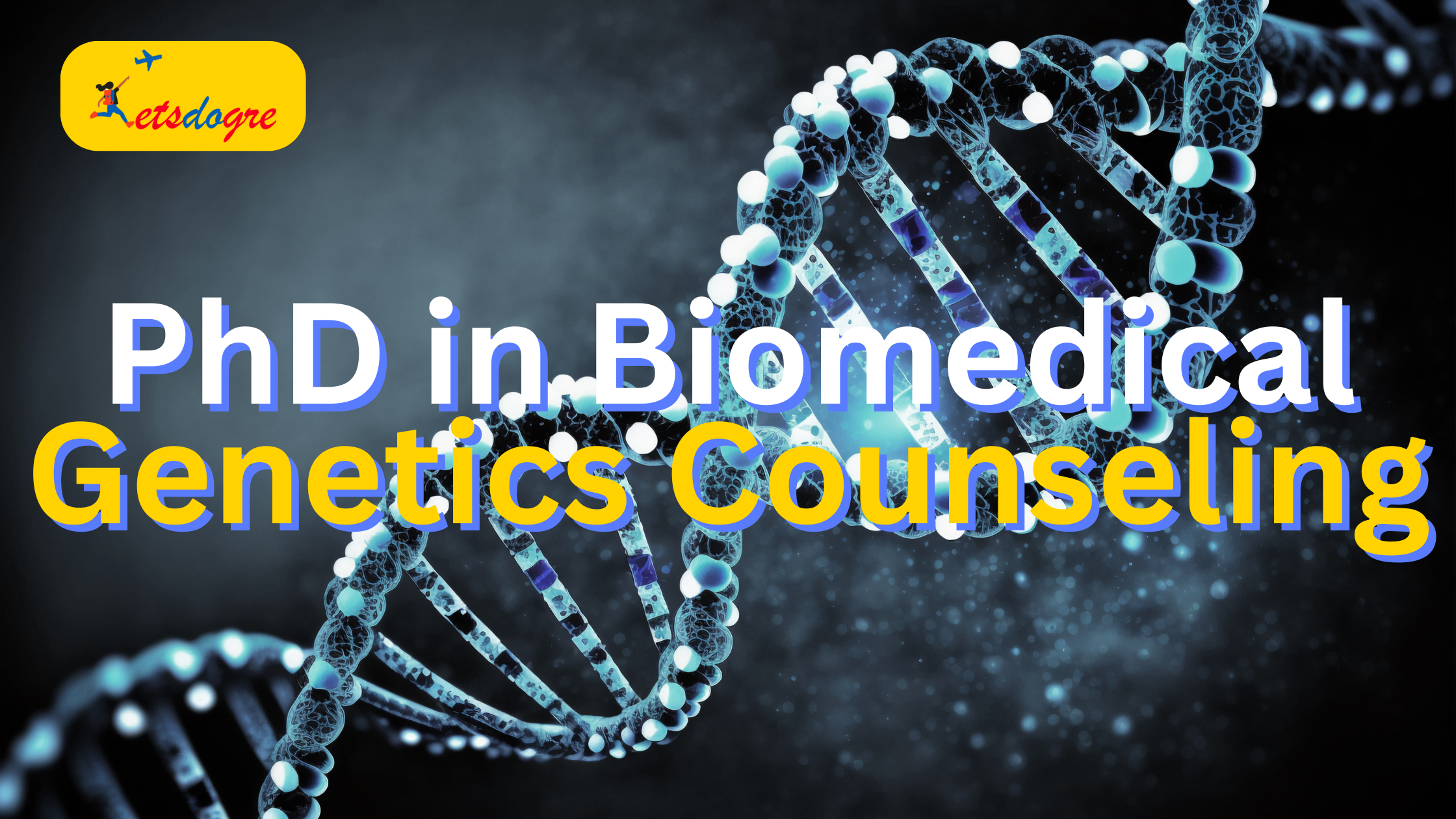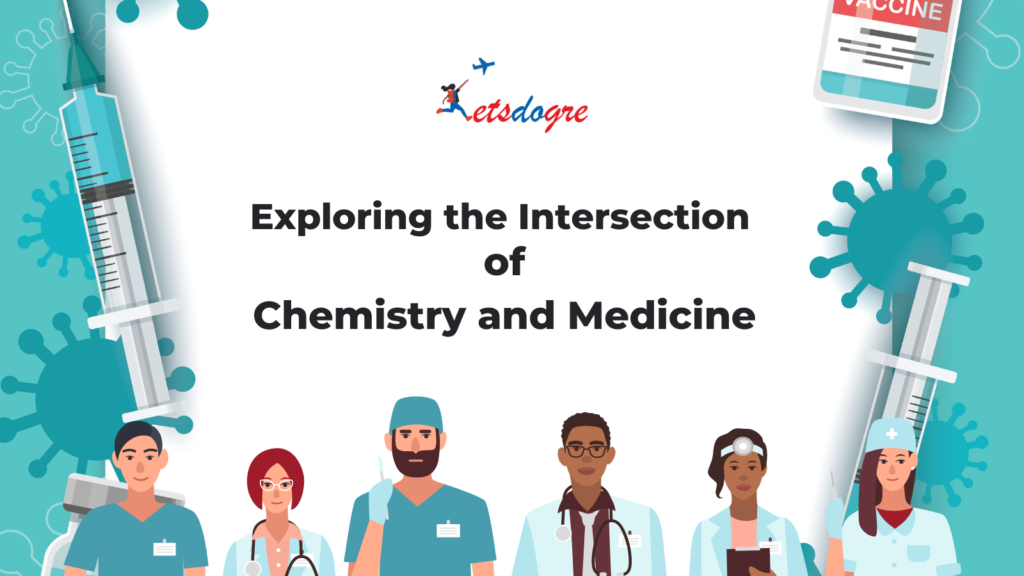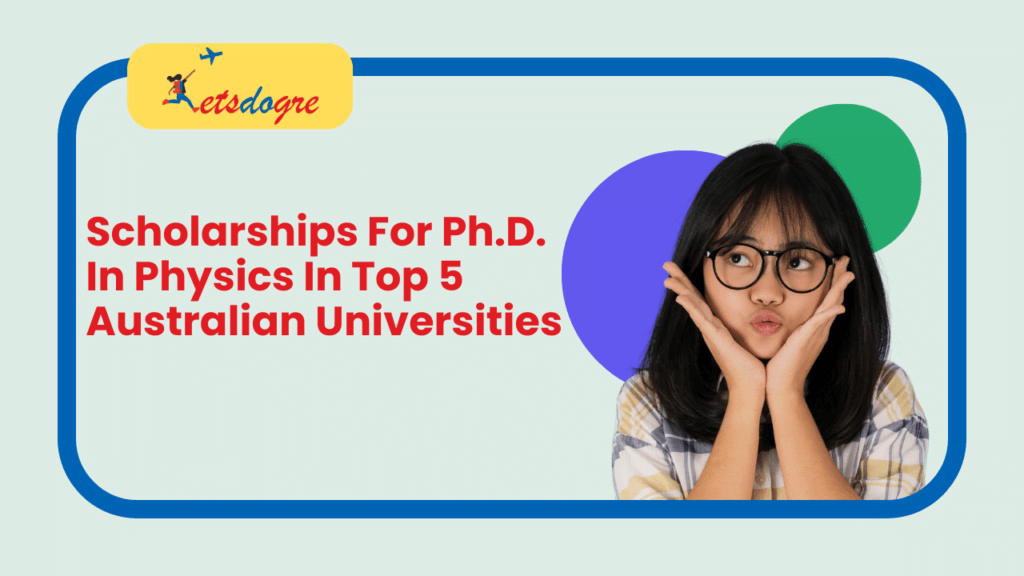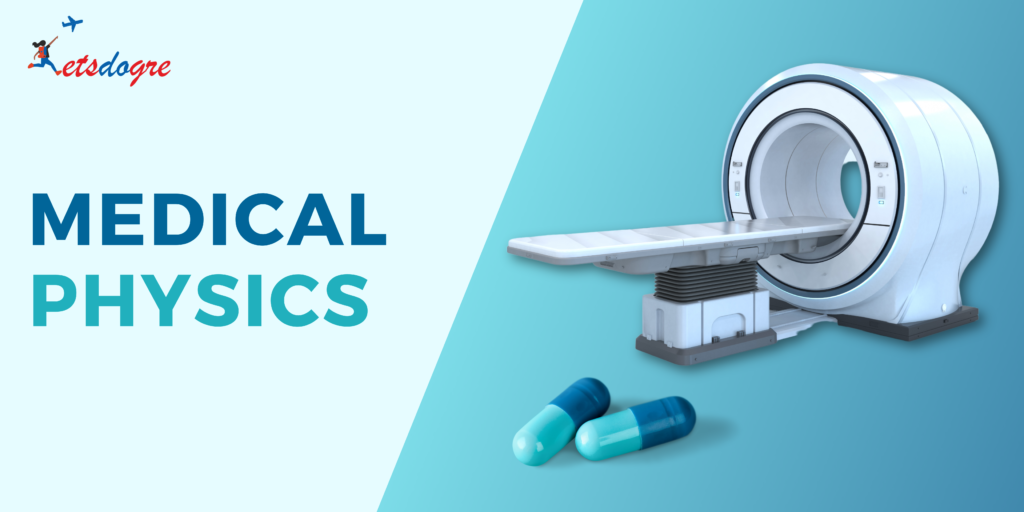
- April 25, 2024
- 1:04 pm
-
Views: 371
PhD in Biomedical Genetics Counseling
What is Biomedical genetics?
In the world of human biology, genetics serves as an important thread weaving through our understanding of health and disease. The field of biomedical genetics stands at the forefront of scientific research, solving the problems of genetic code to conquer the mysteries that underly various medical conditions.
From solving the rare secrets of genetic disorders to paving the way for personalized medicine, biomedical genetics holds immense promise in revolutionizing healthcare.
What is Biomedical genetics counseling?
Biomedical genetics counseling, a specialized field within genetics counseling, is dedicated to helping individuals and families comprehend the genetic factors that contribute to health conditions and diseases.
Genetic counselors in this field work with individuals who may have a personal or family history of genetic disorders, congenital conditions, or hereditary diseases. They provide support, education, and guidance to help individuals make informed decisions about genetic testing, medical management, and family planning.
Genetic counselors in the field of biomedical genetics play a pivotal role. They assess a person’s risk of inheriting or passing on a genetic condition, interpret genetic test results, and provide information about available treatment options, prevention strategies, and supportive resources. Additionally, they offer emotional support and help individuals navigate complex medical and ethical issues related to genetic conditions.
Biomedical genetics counseling isn’t just about providing information. It’s about empowering individuals and families to take control of their health. By understanding their genetic risks, they can make informed choices about their healthcare, with the guidance and support of a genetic counselor.

Understanding Genetics:
In the heart of biomedical science lies the study of genes, the fundamental units of hereditary that encode the instructions for building and maintaining an organism. These genes are made up of DNA, a molecule structured like a double helix, consisting of nucleotide bases, adenine (A), thymine (T), cytosine (C), and guanine (G). With the help of the sequence of these bases within the genes, we can determine the specific traits and functions they possess.
Human genetics is a broad area of research that includes single-gene disorders like cystic fibrosis and sickle cell anemia, as well as complex diseases like diabetes and cancer.
Advances in genome sequencing technology have made it very easy to solve the genetic basis of diseases, enabling scientists to identify genetic variants with various health conditions with accuracy.
The Human genome project, completed in 2003, covered about 92% of the total human genome sequence. Sequencing the human genome marked a significant milestone in biomedical genetics. Since then, rapid advancement in genomic technologies has fueled groundbreaking discoveries in biomedical research.
Genome-wide association studies (GWAS) and next-generation sequencing (NGS) have emerged as a powerful tool in biomedical genetics.
Future Direction in Biomedical Genetics:
As we go deeper into the complexities of the human genome, the future of biomedical genetics holds immense promise for further advancements. Emerging technologies like CRISPR-Cas9 and gene editing for unprecedented precision and efficiency in manipulating the genetic code, opening new doors for gene therapy and cures for genetic disorders.
Nobel laureates and well-known professors in the field of Biomedical Genetics
James D. Watson – He is famous for co-discovering the structure of DNA alongside Francis Crick and Maurice Wilkins. His work laid the foundation for modern genetics and molecular biology.
Francis Crick – Another key figure in the discovery of the DNA double helix structure. His contributions to understanding the genetic code were groundbreaking.
Sydney Brenner – A Nobel laureate for his pioneering work on the nematode Caenorhabditis elegans and its use as a model organism in genetics research.
Barbara McClintock – She received the Nobel Prize in Physiology or Medicine for her discovery of genetic transposition, or “jumping genes,” in maize.
Paul Nurse – A Nobel laureate for his discoveries in cell cycle regulation, particularly the role of cyclin-dependent kinases.
Eric Lander – A prominent figure in the Human Genome Project and a leader in genomic research. He has made significant contributions to our understanding of human genetics.
Jennifer Doudna and Emmanuelle Charpentier – Co-recipients of the Nobel Prize in Chemistry for their development of CRISPR-Cas9, a revolutionary genome editing technology.
George Church – A professor at Harvard Medical School and a leading figure in genomics and synthetic biology. He has contributed to numerous advancements in genetic engineering.
David Botstein -Noted for his work in genetics and genomics, particularly in mapping and sequencing the human genome.
Mary-Claire King – Noted for her discovery of the BRCA1 gene, which is linked to hereditary breast cancer, and her pioneering work in identifying genetic factors in various diseases.
Which are the various biomedical genetics programs?
Biomedical genetics programs vary widely in their focus, curriculum, and research opportunities, but here are some common types you might encounter:
Genetic Counseling Programs: These programs train individuals to become genetic counselors who work with individuals and families to understand and adapt to the medical, psychological, and familial implications of genetic contributions to disease.
Medical Genetics Programs: These programs typically prepare students for careers as medical geneticists who diagnose and manage patients with genetic disorders. This often involves clinical rotations in various specialties such as pediatrics, obstetrics, and internal medicine.
Genomic Medicine Programs: These programs focus on applying genomic information to medical practice, including personalized medicine, pharmacogenomics, and genomic diagnostics.
Human Genetics Programs: These programs encompass a broad range of research and training in human genetics, including the study of the genetic basis of disease, population genetics, and evolutionary genetics.
Molecular Genetics Programs: These programs focus on the study of the molecular mechanisms underlying genetic processes, including gene regulation, DNA replication, and repair, as well as genetic engineering techniques such as CRISPR.
Bioinformatics and Computational Genetics Programs: These programs train students in the computational analysis of genetic data, including genome sequencing, transcriptomics, and population genetics.
Cancer Genetics Programs: These programs focus specifically on the genetic basis of cancer, including the identification of cancer predisposition genes, molecular diagnostics, and targeted therapies.
Pharmacogenetics/Pharmacogenomics Programs: These programs focus on the study of how genetic variation influences drug response, with the goal of optimizing drug therapy based on individual genetic profiles.
Research areas related to Biomedical Genetics Counseling:
- Genetic Testing Methodologies and Ethics
- Psychosocial Impact of Genetic Information
- Communication and Decision-Making Processes
- Disease-Specific Genetic Counseling
- Health Disparities in Access to Genetic Counseling
- Genomics Education and Training
- Genetic Counseling in Precision Medicine
- Ethical, Legal, and Social Implications (ELSI)
- Family Dynamics in Genetic Counseling
- Longitudinal Outcome Studies
All about Ph.D. in Biomedical Genetics Counseling:
Educational Qualification required for pursuing Biomedical Genetics Counseling in the USA
To pursue a PhD in biomedical genetics in the USA, candidates need to have a bachelor’s degree in biology, psychology, genetics, or biochemistry. A health science discipline is typically required as a foundational education.
Application requirements for pursuing Biomedical Genetics Counseling in the USA
- Statement of Purpose: Applicants need to submit a statement of purpose, which includes their academic and professional goals, why they are interested in the field, and why they are applying.
- Academic Statement: The Academic Statement focuses on academic achievement, GPA, relevant coursework, and any academic awards.
- Personal Statement: This section allows you to discuss your personal background and experiences and how they’ve shaped your interest in biomedical genetics. It also allows you to showcase your unique perspective and experiences.
- Curriculum Vitae: This is a comprehensive document outlining your academic and professional history, including education, research experience, publications, presentations, awards, and relevant skills.
- Research Experience: This could be a separate document or part of your CV where you detail any research projects you’ve been involved in, including your contributions and any publications or presentations resulting from your work.
- Letter of Recommendation: You’ll typically need letters from professors or professionals who can speak to your academic abilities, research experience, and potential for success in a PhD program.
- English Proficiency: If English is not your first language, you’ll likely need to demonstrate proficiency through standardized tests like the TOEFL or IELTS.
- English Proficiency Waiver: Some programs may waive the English proficiency requirement for applicants who have completed their undergraduate degree in an English-speaking country or who meet other criteria demonstrating English proficiency.
- Academic Transcripts: You’ll need to submit official transcripts from all undergraduate and graduate institutions you’ve attended, showing your academic performance and coursework.
Universities offering Ph.D. in Biomedical Genetics Counseling
Rutgers University
Arizona State University
Boston University
Wake Forest University
Cardiff University
University of California
University of Alabama
John Hopkins University
University of South Carolina
Purdue University
Connect with us for more information on universities offering PhD in biomedical genetics counseling.
What are the Careers you can pursue after completing PhD in biomedical genetics counseling?
- Genetic Counselor
- Clinical Geneticist
- Research Scientist
- Biotechnologist
- Bioinformatician
- Pharmaceutical Researcher
- Medical Writer/Communicator
- Healthcare Administrator
- Regulatory Affairs Specialist
- Genetic Testing Laboratory Director
- Biomedical Engineer
- Pharmaceutical Sales Representative
- Science Educator
- Bioethicist
- Clinical Trials Coordinator
Frequently Asked Questions
A biomedical genetics counseling PhD typically takes around 4 to 6 years to complete, although the exact duration can vary depending on factors such as program structure, research requirements, and individual progress.
The highest-paying biomedical genetics jobs often include positions such as genetic counselors, medical geneticists, biotechnology research scientists, pharmaceutical researchers, and academic faculty members specializing in genetics. Salaries can vary widely depending on factors such as experience, education, location, and employer.
Several scholarships are available for pursuing a PhD in biomedical genetics, such as the Graduate Teaching Assistantship (GTA), Graduate Research Assistantship (GRA), the National Institutes of Health (NIH) Ruth L. Kirschstein, the National Research Service Award (NRSA), the American Society of Human Genetics (ASHG) Trainee Awards, and various institutional scholarships offered by universities.
Shortlisting universities before applying is crucial because it allows applicants to carefully consider factors such as program reputation, faculty expertise, research opportunities, funding availability, location, and fit with personal interests and career goals. This helps applicants focus their efforts on applying to institutions that are the best match for their academic and professional aspirations.
The scope of biomedical genetics is vast and rapidly expanding, encompassing research areas such as human genetics, medical genetics, population genetics, genetic epidemiology, genetic counseling, genomics, personalized medicine, pharmacogenomics, and gene therapy. Biomedical genetics plays a crucial role in advancing our understanding of the genetic basis of disease, developing new diagnostic and therapeutic approaches, and improving healthcare outcomes.
The salary of a PhD biomedical scientist in the US can vary depending on factors such as experience, specialization, employer, geographic location, and industry sector. According to data from the U.S. Bureau of Labor Statistics, the median annual wage for medical scientists, which includes biomedical scientists, was $91,510 in May 2020. However, salaries can range from around $60,000 to well over $100,000 or more, especially for those in leadership positions or with significant experience.
Internship opportunities for PhD students in biomedical genetics can vary depending on the institution, program, and individual research interests. Some potential internship opportunities may include research internships at academic institutions, government agencies, biotechnology companies, pharmaceutical companies, and nonprofit organizations. These internships provide valuable hands-on experience, networking opportunities, and exposure to different research environments and career paths within the field of biomedical genetics.





